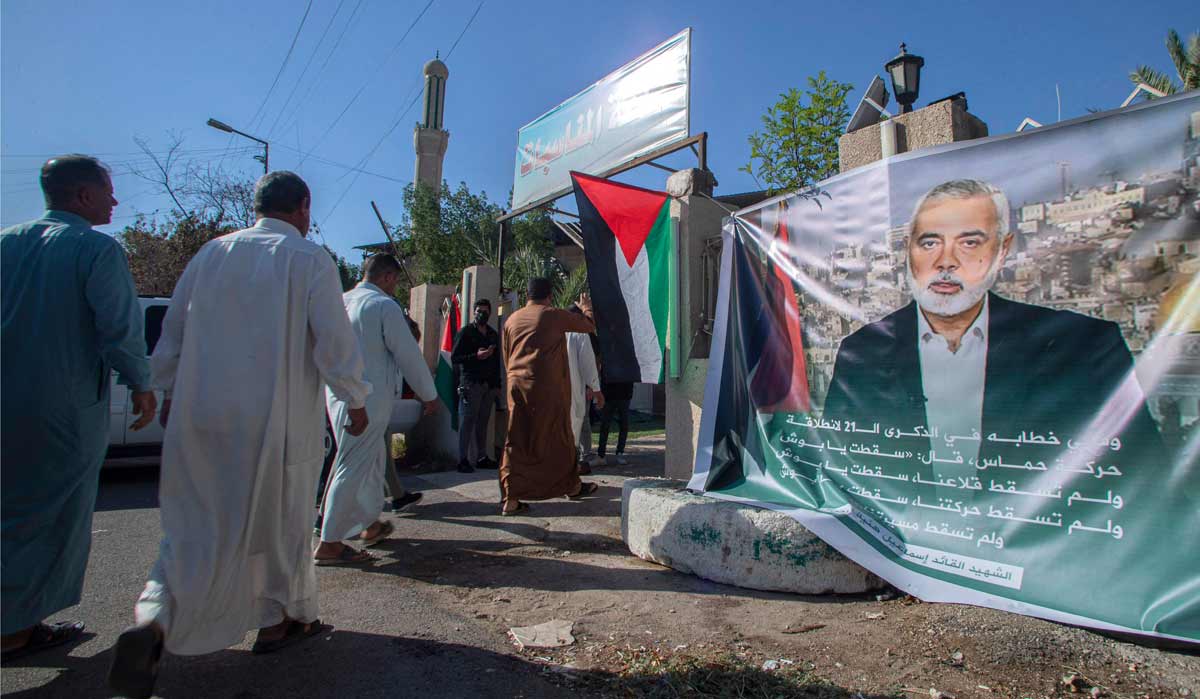As tension mounts in the Middle East with Iran and proxies in Gaza, Lebanon and Yemen threatening repercussions for the killing of Hamas leader Ismail Haniyeh, the Pentagon has announced that it was sending more combat aircraft and warships to the Middle East.
This comes as India too warned its citizens in Israel to stay vigilant and adhere to the safety protocols. "Please exercise caution, avoid necessary travel within the country and stay close to safety shelters. The Embassy is closely monitoring the situation and remains in regular touch with the Israeli authorities to ensure the safety of all our nationals," the advisory read.
The Indian Embassy in Beirut also advised Indian nationals against travelling to Lebanon till further notice. It also advised them to leave Lebanon. Air India too cancelled all Delhi-Tel Aviv flights until August 8.
In view of the explosive situation, Defense Secretary Lloyd J. Austin III announced the military would send one additional squadron of Air Force F-22 fighter jets, an unspecified number of additional Navy cruisers and destroyers capable of intercepting ballistic missiles, and, if needed, more land-based ballistic-missile defence systems.
Though there was speculation that the Pentagon might not replace the USS Theodore Roosevelt carrier strike group in the Middle East once it completed its ongoing deployment, it decided to rotate in the USS Abraham Lincoln Carrier strike group to replace it. "Some ships already in the western Mediterranean Sea will move east, closer to the coast of Israel to provide more security," a senior Pentagon official told The New York Times.
Though the Pentagon did not specify when the warplanes and ships would arrive, reports quoting officials said it would take days for the additional aircraft to arrive and somewhat longer for the naval reinforcements.
However, Pentagon spokesperson Sabrina Singh said the U.S. did not believe escalation was inevitable though it would be "bolstering out force protection in the region." "I think we are being very direct in our messaging that certainly we don't want to see heightened tensions and we do believe there is an off ramp here and that is that ceasefire deal," Singh said.
While Iran’s supreme leader Ayatollah Ali Khamenei is said to have ordered Iran to strike Israel directly, Hezbollah leader Hassan Nasrallah has also hinted that a coordinated attack on Israel could be in the works.
"Because they have picked a fight with everyone, they don’t know where the response will come from … the response will come separately or coordinated," he said in a speech Thursday.
Besides Haniyeh, one senior Hamas leader and a top Hezbollah commander were also killed recently. While the head of Hamas' military wing Mohammed Deif was killed in Gaza, Hezbollah Commander Fouad Shukr died in a strike in Lebanon last Tuesday.


